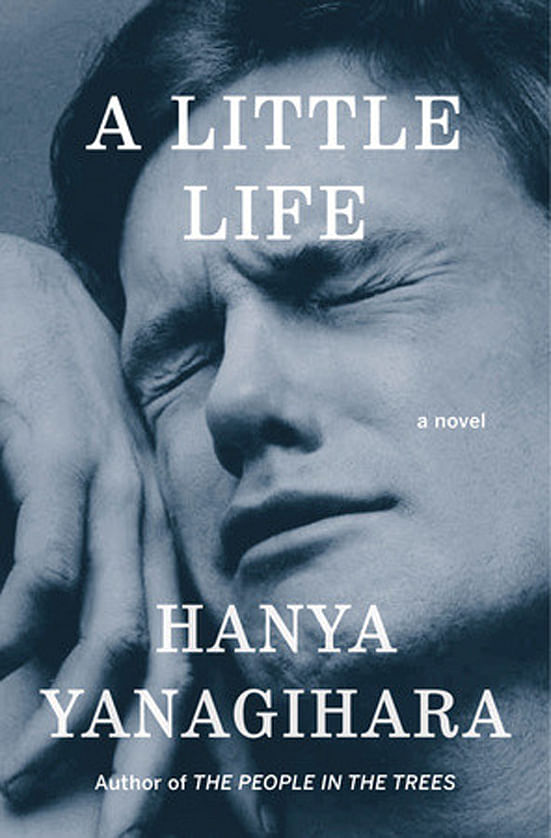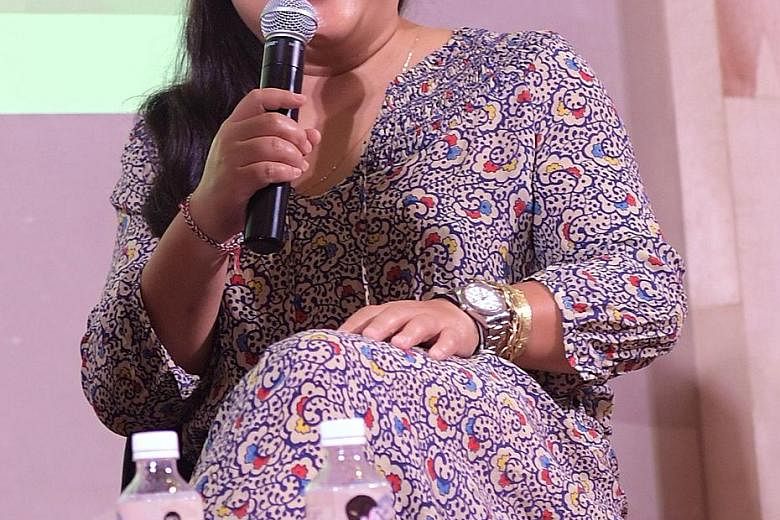To naysayers who have criticised the graphic violence in her work, American author Hanya Yanagihara has this to say: "Explicit brutality should be part of the novel again."
Her second novel, A Little Life (2015), has stunned and moved readers with its unflinching portrayal of abuse and trauma.
The 42-year-old, who spoke at the Singapore Writers Festival last Friday, sees the brutality in her work following in the tradition of classic novels such as 19th-century Russian literature, which is lost in today's novels.
"We live in an era where violence and brutality and difficult lives are more accessible to us than ever before, yet we look away from them faster than ever," she said.
"It is in the form of the novel where we find ourselves immersed to the point where we are not able to close the book."

A Little Life, which was shortlisted last year for the Man Booker Prize, begins as a sunny post-collegiate novel about four male friends, but takes on a darker tone as the traumatic past of one of the quartet haunts him through the years.
Yanagihara spoke to a packed house in the Arts House Chamber. With all the seats taken, many sat listening raptly on the floor or the gallery steps.
Many carried copies of A Little Life with the controversial cover featuring Peter Hujar's photo Orgasmic Man, an image in which pleasure and pain are indistinguishable.
Yanagihara said she prefers this cover to the image of a New York tenement chosen for British editions.
"You just know you're witnessing a moment of unbearable intimacy. You're trespassing on something you shouldn't see.
"The publishers wanted a beautiful image, but I wanted something that - like the book - asks for total engagement and often repels."
She described the challenge of coming up repeatedly against the inadequacy of language when it comes to expressing pain. "We have a paltry selection of words to talk about pain and its perpetrators."
Many audience members prefaced their questions with declarations of how moved they were by A Little Life. One fan said he had to wear sunglasses on the MRT at night to hide his tears.
Yanagihara, who is single, maintained she never set out to manipulate readers' emotions. Rather, she wrote pushing herself to her own emotional limits.
"I was going into realms I didn't feel comfortable in because they were so nakedly and excessively emotional," she said. "To a lot of American writers, it's comforting to have an arm's length of irony. This book has no irony. It is an open wound of a book.
"I believe if your work does not make you deeply uncomfortable, you are not pushing hard enough."
She also shared her thoughts on current affairs, such as the recent United States election of Republican candidate Donald Trump as president.
She said: "The one upside is that we are going to see a flourishing of art, literature, TV and movies in the next four years. Dictatorships have given us some of the greatest pieces of contemporary art that have endured as documents of their time."
Asked by an audience member what she thought of the Nobel Prize in Literature going to singer-songwriter Bob Dylan instead of novelist Haruki Murakami, she said: "I think it should have gone to Leonard Cohen."
As the room applauded, she added that Cohen, also a singer-songwriter whose death at age 82 had been announced earlier that day, was a "better writer" than Dylan, who should have been awarded the Nobel Peace Prize instead.
•The Straits Times is the official media partner of the Singapore Writers Festival. For more stories on the festival, go to http://str.sg/4x7R


